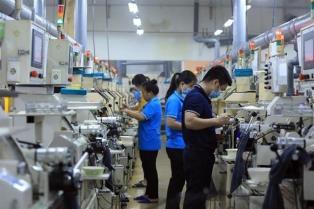The change from lump-sum taxation to a self-declaration system aims to ensure transparency, fairness, and stronger private sector growth in line with Resolution 68-NQ/TW.
HCM CITY — The lump-sum tax policy will be officially abolished starting from January next year, requiring household businesses to declare income, pay taxes accordingly, and comply with digital invoicing requirements instead of paying a fixed lump-sum tax.
The change would open new opportunities for household businesses to access loans, expand operations, and transition into formal enterprises, while also posing considerable challenges during the transition, experts said at the seminar “Addressing Household Business Concerns over the End of Lump-Sum Tax” held on Friday in HCM City.
Nguyễn Thị Cúc, chairwoman of the Vietnam Tax Consulting Association and former Deputy General Director of the General Department of Taxation, said the change from lump-sum taxation to a self-declaration system aims to ensure transparency, fairness, and stronger private sector growth in line with Resolution 68-NQ/TW.
She noted that under the Law on Tax Administration and related regulations, two tax calculation methods currently exist: lump-sum and declaration. From 2026, the lump-sum method will be abolished and replaced by a declaration system linked to invoices and supporting records.
This will allow businesses to proactively declare revenue, expenses, and payable taxes. Households earning less than VNĐ200 million (US$7,569) annually will be exempt from value-added tax and personal income tax, while larger ones must comply with the declaration system under closer oversight.
The move is expected to enhance credibility, improve transparency, facilitate access to loans and business partnerships, and provide a foundation for household businesses to gradually evolve into enterprises.
The State has also rolled out support measures such as lowering costs related to land and credit access, promoting digital transformation, workforce training, and offering tax exemptions or reductions during the early stage of transformation. These efforts are seen as crucial for strengthening the private sector, which currently contributes about 50 per cent of GDP and employs more than 80 per cent of the national workforce, positioning it as a key driver of sustainable growth, she added.
Nguyễn Minh Tuấn, deputy CEO of MISA Joint Stock Company, emphasised: “On the one hand, this reform marks an important step in institutional reform and the modernisation of tax administration. On the other hand, it requires millions of household businesses to undergo a strong transition, moving from the traditional, simple lump-sum taxation system to a more professional model that requires technology adoption and a new management mindset.”
While acknowledging initial difficulties such as changing business habits, investing in management tools, and adapting to transparent reporting, Tuấn highlighted the long-term gains. With transparent finances, household businesses will find it easier to access credit, integrate into value chains, and achieve sustainable growth, he said.
At the seminar, Bùi Thị Trang, director of MISA Retail Solutions Division, introduced a comprehensive package of sales management, e-invoicing, and tax declaration tools designed for household businesses.
For small businesses, the MISA eShop platform allows users to manage sales, issue invoices, maintain records, and declare taxes in one smartphone app. Powered by AI, it enables voice-based order creation and automatically compiles data for tax submissions.
For larger households, MISA offers an integrated package combining MISA eShop with POS devices, connected to the company’s accounting and tax solutions. The system automates data entry, e-tax declarations, and payments, while linking with the MISA accounting service platform, which connects nearly 24,000 accounting professionals to support compliance and professionalises financial management.
At the seminar, VPBank introduced tailored solutions for household businesses, including the V20K loan package with preferential rates from 3.99 per cent per year and a credit limit of up to VNĐ20 trillion.
Ngô Bình Nguyên, director of VPBank’s household business segment, emphasised that VPBank not only provides capital but also supports household businesses in management, insurance, and reinvestment to foster a long-term growth.
Jointly organised by MISA JSC and VPBank, the seminar attracted nearly 500 in-person participants and more than 5,000 online attendees, including household businesses, tax officials, financial experts, and media representatives. — VNS




